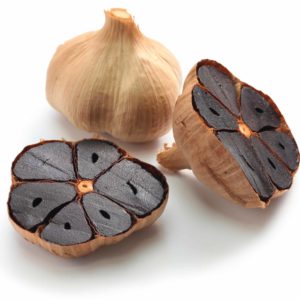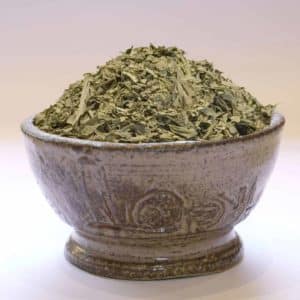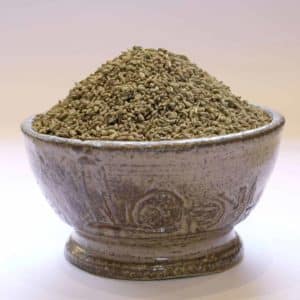0
- ONLINE GROCERY
- OUR HISTORY
- BLOG
- CONTACT
- MY ACCOUNT
- PRO
2,40 €19,60 € /kg
Cousin to the white sesame(Sesamum indicum), the black sesame ( Sesamum indicum Nigrum L.) is a sesame variety apart. Its crunchy, nutty flavor will liven up your salads this summer; find out more about the different uses of this little black seed below.
Black sesame seeds, a cousin of white sesame, are incredibly versatile in the kitchen. They can easily be sprinkled over salads, vegetables, pasta or rice. The seeds can even be used in pastries or as a crunchy coating on a fine fish steak. They are found alongside their cousin, whole sesame, in organic furikake.
Black sesame seeds can easily be transformed into tahini.
While they're generally considered safe for most people, some can cause an allergic reaction. So it's best to be cautious if you're using them for the first time.
These small, flat seeds are packed with antioxidants and healthy fatty acids. They are rich in protein, zinc, iron, fatty acids and antioxidants. The nutrients found in black sesame seeds can promote healthy hair growth and maintain supple skin. That's why they're also used in many hair and skin products.
How about sushi Maki with cucumber, avocado and black sesame? Or a black and white quinoa salad with black and white sesame?
Black sesame is an important source of protein, dietary fiber and many essential nutrients, such as iron, calcium and B vitamins. It is also rich in unsaturated fatty acids, which can help maintain healthy blood cholesterol levels and prevent certain heart diseases.
| Weight | ND |
|---|---|
| Weight | |
| Botanical nomenclature | sesamum indicum nigrum L. |
| Color | Black |


